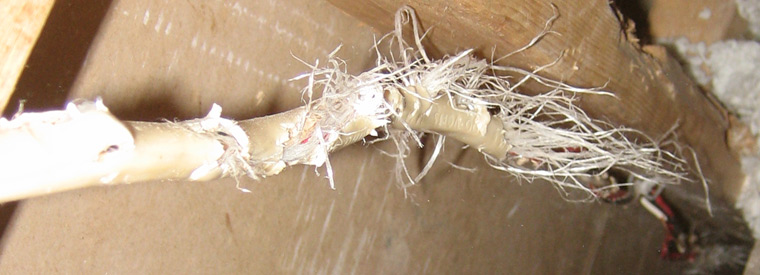-
info@aaanimalcontrol.com
Call us for help in your town
Humane Wildlife Education
Is It Possible That Homeowners Insurance WillPay for Rat Damage?
Need rat removal in your hometown? We service over 500 USA locations! Click here to hire us in your town and check prices - updated for year 2020.
A more delicate matter is when your property suffers damage due to a rodent infestation, and you’d want to use your homeowners’ insurance to cover it. In this case, we have to set a few things straight, starting with what a homeowners insurance program usually covers, and in what circumstances rat damage can be included in said coverage. Of course, insurance programs differ wildly, so you may have a clause for rat damage in your contract, but for the most part, this type of insurance does not cover this kind of damage unless it’s under very special circumstances.

Overview of homeowner’s insurance contracts. For the most part, these types of insurance contracts only cover environmental damage. So we’re talking flooding, earthquakes, fires, strong storms, and even tornadoes. And even in these cases, you might need additional policies to cover these sorts of events. But how about rat damage? We all know rats can cause havoc to your home, from a number of perspectives. First and foremost, we’re talking about a pest who can cause structural damage to your home, not to mention chew on wires and completely destroy lawns and furniture. It would stand to reason that homeowners insurance would cover this. But it doesn’t, unless it’s under some specific situations.
These situations are, for the most part, instances where environmental damage which is covered leads to an infestation. If a storm were to break a window while you’re away and there would be a rat infestation resulting from that broken window, then your homeowners insurance will probably pay for both the window and the infestation that ensued. Another exception would be if a home inspection failed to detect rat damage or a rat infestation; once detected after you move in, it will be covered.
So, if insurance won’t cover it, what can I do? The majority of instances of rat damage are not covered. But don’t worry – there are good, reliable options out there to solve your problem. Contacting a wildlife control specialist will ensure that you solve your problem in a short while, and at very affordable costs compared to what it would cost you if you tried to tackle the problem yourself. You’ll end up wasting a lot of money on solutions that may not work or even make things worse. A professional can and will tackle the root of the problem first of all, and then will follow up with actually getting rid of the rats, because just eliminating them leaves a welcoming environment for another infestation.
If you’re unsure about what your homeowner’s insurance covers, contact your lawyer and ask them specifically about the problem you’re having. And in the high likelihood your insurance policy does not cover it, get in touch with a wildlife control professional to handle the problem immediately before more damage gets done.
For more information, you may want to click on one of these guides that I wrote:
How much does rat removal cost? - get the lowdown on prices.
How to get rid of rats - my main rat removal info guide.
Example rat trapping photographs - get do-it-yourself ideas.
Rat job blog - learn from great examples of rat jobs I've done.


















